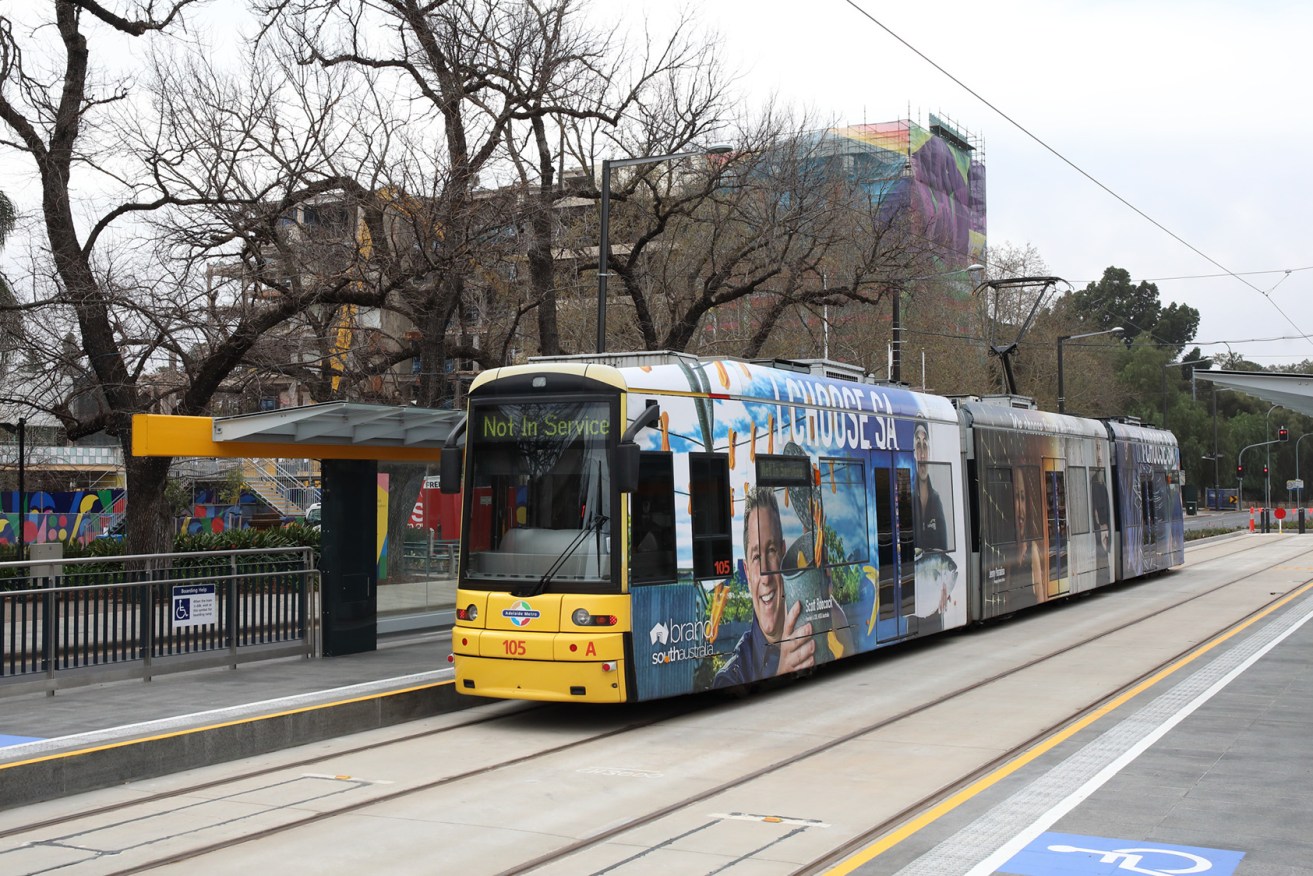Unions rail against privatisation as Libs leave doors open
Privatising the state’s rail fleet could usher in higher fares, service cuts and government subsidies, the sector’s union claims, as Premier Steven Marshall today confirmed “all options” were on the table.

The State Government has conceded it's open to a privatisation option for rail services. Photo: Tony Lewis / InDaily
Marshall and his Transport Minister Stephan Knoll have both refused to rule out privatising the train and tram network, with the Premier insisting “we haven’t made any decision, but we’re looking at all options”.
It follows questions about the state Liberal Government’s privatisation plans in parliament yesterday, with Knoll giving equivocal responses to a range of Opposition inquiries.
“We’ve made it very clear, we’re dissatisfied with the public transport system in SA,” Marshall told reporters this morning.
“We’ve made no secret of the fact that the minister and the department have been out looking at best practice worldwide… what we’re interested in is improving public transport, increasing patronage.
“We’re way at the bottom of the league table – we don’t accept that, and we’ll be making our investments commensurately [but] one thing taxpayers can be very assured of is we’ll be making the decisions that we make in the best interests of all South Australians.”
It follows InDaily last week revealing the creation of a new SA Public Transport Authority within the Department of Planning, Transport and Infrastructure geared towards turning around “declining” public transport use.
All current departmental public transport service staff will be transferred to the new division, which will be responsible for the delivery of all public transport services, in line with a Liberal election promise aimed at encouraging a more “customer focussed” culture within the bureaucracy.
The union responsible for government employees on the rail network, the Rail, Tram and Bus Union, argues any privatisation move would require either cutbacks, increased revenues or government subsidies offsetting any savings or windfall.
State secretary Darren Phillips told InDaily: “Obviously we’d be against any privatisation, because it doesn’t make any improvements to services and it’s not necessarily a cheaper way of running public transport.”
He conceded that “obviously at the moment [the service] is not running at a profit”.
“So if you privatise something that’s not making profit, a private company would obviously want to make a profit,” he said.
“Where’s that come from? It could come from cutting services, higher fares, subsidies from the government – or all of the above.”
Knoll himself today conceded taxpayers would continue to subsidise a privatised service, telling ABC Radio Adelaide: “There is no way that public transport is going to be a profit-making exercise, that is fundamentally ridiculous – the South Australian public, the taxpayer, will continue to put in huge amounts of money.”
“This isn’t about profit,” he said in a separate interview with FIVEaa.
“This isn’t about a company coming in and making the fare-box pay for the entire service… the Government’s always going to be involved and in fact the [Public Transport Authority] model that we put down for the department is that we want to still maintain control over everything that’s going on.
“There is always going to be a very strong… injection of public monies into public transport, because it isn’t a money-making venture… there is a very large social equity component to the public transport service and that has to be maintained, but at this stage to play a rule in, rule out game I think is a bit disingenuous when we’re simply too early on in the process.”
He did note, however, that “the opportunity to bring in expertise we think is pretty good”.
“We want to have the smartest people from around the country, and potentially around the world, coming to give us what is the best advice and tell us what is the best way to go forward,” he said.
“The status quo isn’t good enough… we’re willing to keep our mind open and keep ideas on the table.”
But Phillips warned retaining control would be difficult if “you’re handing over state assets to a company that will expect and demand a profit”, saying cuts and fare rises would “impact the most vulnerable in our community, including children travelling to and from school, elderly people and people with disabilities”, as well as his members through “the uncertainty around their futures”.
When the previous Liberal government privatised the bus service in 2000, the privately-employed drivers shifted from the RTBU to the Transport Workers’ Union.
TWU state secretary Ian Smith said: “We’re dead against any more privatisation, because that means the services will suffer – and I don’t think this Government’s got a mandate to do it.”
Labor leader Peter Malinauskas said any such move would be of “grave concern to the 75,000-plus commuters that use these services every single day of the week”.
“Public transport has got to be about people, not about profits,” he told reporters.
He said the bus privatisation saw “fares go up, services cut and drivers lose their jobs”.
“Almost every other part of the world is investing more in public transport,” he said.
“Labor is opposed to the idea of privatising the tram and train network, and we’ll fight this every step of the way.”
Want to comment?
Send us an email, making it clear which story you’re commenting on and including your full name (required for publication) and phone number (only for verification purposes). Please put “Reader views” in the subject.
We’ll publish the best comments in a regular “Reader Views” post. Your comments can be brief, or we can accept up to 350 words, or thereabouts.
InDaily has changed the way we receive comments. Go here for an explanation.




